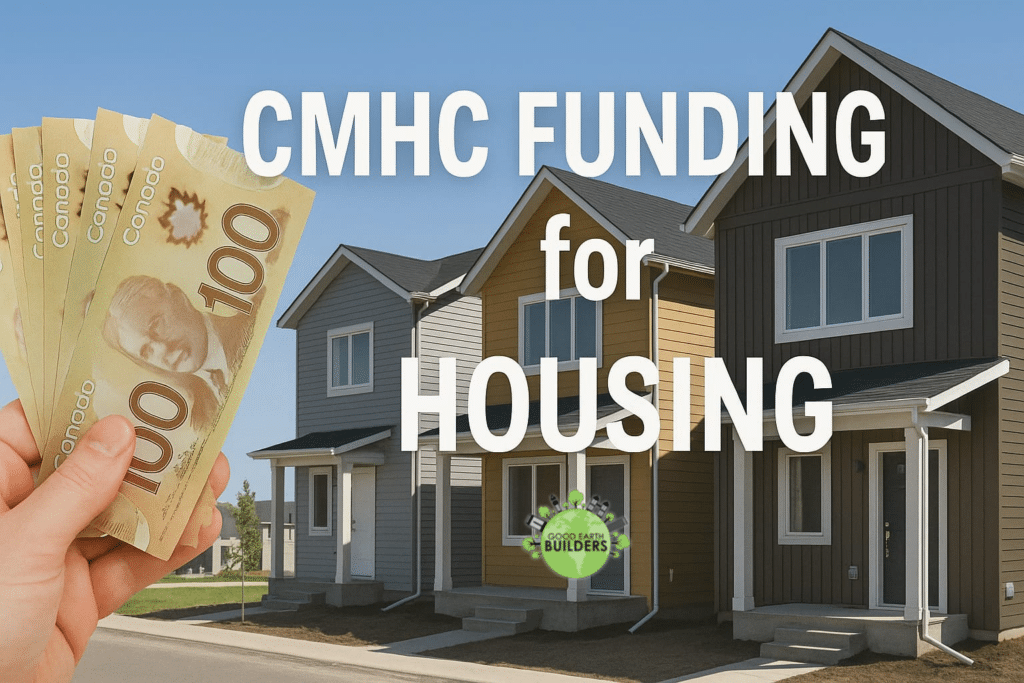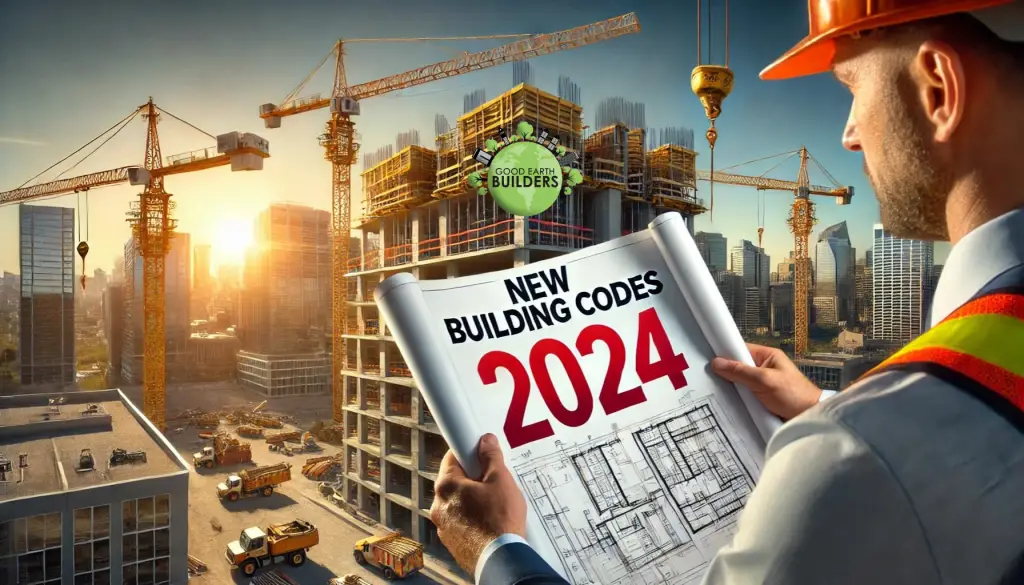Friday, July 11, 2025
Introduction: Calgary’s Affordable Housing Crisis & CMHC’s Role
Calgary needs 15,000+ new affordable units by 2027 to address its housing shortage. With rising construction costs and land prices, Canada Mortgage and Housing Corporation (CMHC) funding is no longer optional—it’s essential. In 2025, CMHC programs offer up to $25B nationwide to support rental, infill, and non-profit housing projects. This guide breaks down how Calgary developers can secure these funds and partner with experienced builders like Good Earth Builders (GEB) to fast-track projects from blueprint to occupancy.
Why CMHC Funding Matters for Calgary Developers
- Bridge Financing Gaps: Cover 40–90% of construction costs at below-market rates.
- Accelerate Timelines: Priority permitting for CMHC-backed projects in high-need areas like Forest Lawn or Marlborough.
- Future-Proof Investments: Align with Calgary’s Affordable Housing Strategy and federal sustainability mandates.
2025 CMHC Programs: Calgary’s Top Funding Opportunities
1. Rental Construction Financing Initiative (RCFI)
- Funding: Up to $65M per project at 1.5% interest.
- Eligibility: Projects with ≥ 30% units below market rent ($1,200/month for 1-bed).
- Calgary Focus: Priority for transit-adjacent builds (e.g., near Green Line LRT stations).
- GEB Insight: *We’ve used RCFI for the Beltline’s 60-unit modular housing project, cutting costs by 25%*.
2. Co-Investment Fund
- Funding: Grants covering 50% of construction for energy-efficient or accessible units.
- Requirements:
- Meet NERv4 or Passive House standards.
- ≥ 10% units for vulnerable groups (seniors, Indigenous families).
- GEB Edge: *Our net-zero ready designs in Skyview Ranch qualified for $1.2M in co-investment grants*.
3. Rapid Housing Initiative (RHI)
- Funding: $100K–$250K per unit for projects completed in ≤ 12 months.
- Target: Homeless populations, survivors of violence.
- Calgary Success: *Drop-In Centre’s 45-unit expansion in Bridgeland*.
4. Green Building Incentives
- Funding: Up to $25K/unit for projects exceeding 2025 energy codes.
- Must-Haves: Solar readiness, airtight envelopes (≤ 1.0 ACH), low-carbon materials.
Navigating the CMHC Application: 7 Steps to Success
- Pre-Qualify Your Project
- Confirm site zoning (e.g., R-CG or M-C1 for multi-family).
- Conduct a feasibility study with a CMHC-approved appraiser.
- Choose the Right Program
- For speed: RHI (12-month deadline).
- For scale: RCFI (≥ 50 units).
- Partner with Indigenous/Non-Profit Groups
- Projects with Tsuut’ina Nation or Calgary Housing Company gain priority scoring.
- Submit Energy Modeling Reports
- Demonstrate compliance with Alberta’s 2024 Building Code (R-25 walls, R-40 roofs).
- Secure Municipal Support
- Leverage Calgary’s Affordable Housing Incentive Program for density bonuses or fee waivers.
- Select a CMHC-Compliant Builder
- Critical: Contractors must prove experience with CMHC’s inspection protocols.
- Post-Approval Compliance
- Pass 3rd-party audits at foundation, framing, and occupancy stages.
GEB: Your CMHC Construction Partner in Calgary
As an A+ BBB-rated builder with 15+ CMHC projects completed, Good Earth Builders simplifies the funding-to-construction pipeline:
Why Developers Choose GEB
- End-to-End CMHC Expertise:
- Pre-Application: Feasibility studies, energy modeling, and grant-maximizing designs.
- Construction: CMHC-compliant materials, modular techniques (cut timelines by 40%).
- Compliance: Navigate inspections with 100% pass rate since 2020.
- Cost Control:
- Fixed-price contracts aligned with CMHC disbursement schedules.
- Local supplier network (e.g., Lafarge concrete, KWP windows) for bulk discounts.
- Sustainability Focus:
- Net-zero-ready builds using ICFs, solar, and heat recovery ventilators.
Case Study: Forest Lawn Affordable Housing Project
- Scope: 42-unit townhomes for low-income families.
- CMHC Funding: $4.8M via RCFI + Co-Investment Fund.
- GEB’s Role:
- Secured permits in 45 days using Calgary’s Housing Accelerator priority lane.
- Delivered project 18% under budget with factory-built panels.
2025 Challenges & Solutions for Calgary Developers
| Challenge | Solution | GEB’s Approach |
|---|---|---|
| Rising Material Costs | Lock prices via CMHC advance disbursements | Pre-purchase steel/lumber through partners |
| Labor Shortages | Use modular construction | In-house factory team + SAIT-trained crews |
| Zoning Delays | Target TOD zones (e.g., Saddle Ridge) | Dedicated permit expediter on staff |
Conclusion: Build Faster, Smarter & Funded
CMHC funding is Calgary’s most powerful tool to combat the housing crisis—but securing it requires expertise in both bureaucracy and construction. By partnering with Good Earth Builders, you gain a turnkey solution: from CMHC application support to on-budget, code-compliant delivery.
Ready to Start Your CMHC Project?
✅ A+ BBB-Rated ✅ 15+ CMHC Projects Completed ✅ Calgary-Based Experts
📞 Contact GEB Today for a free funding assessment and project roadmap.




